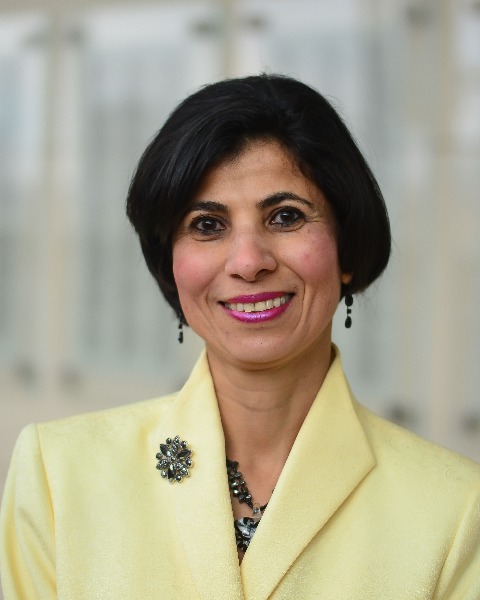
Ghada A. Soliman, MBBCh, PhD, RDN, CDN
Professor of Nutrition and Doctoral Program Director
City University of New York, Graduate School of Public Health and Health Policy
Dr. Soliman's research focuses on the role of the nutritional and environmental exposome to promote public health, improve disease prevention, and reduce the disease burden. Her research integrates wet laboratory methods of nutrient-sensing pathways, such as the mechanistic Target of the Rapamycin (mTOR) complexes (mTORC1 and mTORC2) metabolic networks, to investigate the role of the nutritional exposome in metabolic diseases and cancer, as well as mechanistic explanatory studies in cell culture in the wet laboratory setting. Her translational research investigates the non-genetic drivers of human diseases using a combination of methods, including high-resolution mass spectrometry and biochemical methods, genomics, predictive models, and machine-learning/AI tools. The research integrates the impact of mTOR complexes on untargeted metabolomics, diet, and internal exposome, as well as the use of genome-wide association studies (GWAS) databases to investigate the causality of mTOR and nutrients in diabetes and obesity, to explain health outcomes, and inform repurposing opportunities of FDA-approved mTOR inhibitors. Dr. Soliman’s transdisciplinary research portfolio spans cardiometabolic risk and cancer research, chronic disease prevention, population health, school nutrition, systems biology, and laboratory-based nutrient metabolism. Her current research includes the Cardiovascular Kidney Metabolic (CKM) syndrome and leverages the NIH-All of Us Database to address the factors contributing to the progression stages of CKM to promote disease prevention and develop interventions that reduce the disease burden.
Dr. Soliman has a well-established track record both in research and teaching, and has taught several courses on human nutrition across the life course, community nutrition education, and nutrient metabolism. Dr. Soliman’s Public health nutrition research is centered on optimal nutrition as an integral part of public health promotion and disease prevention. Her community nutrition research focuses on health equity, access to food, school nutrition, childhood obesity prevention, weight management among individuals, communities, and across populations and wellness programs in the workplace. Dr. Soliman’s community research emphasizes a nutrient-dense, well-balanced diet, physical activity, and behavioral modification to promote optimal health.
Poster(s):
-
Sunday, June 1, 202511:45 AM - 12:45 PM ET
